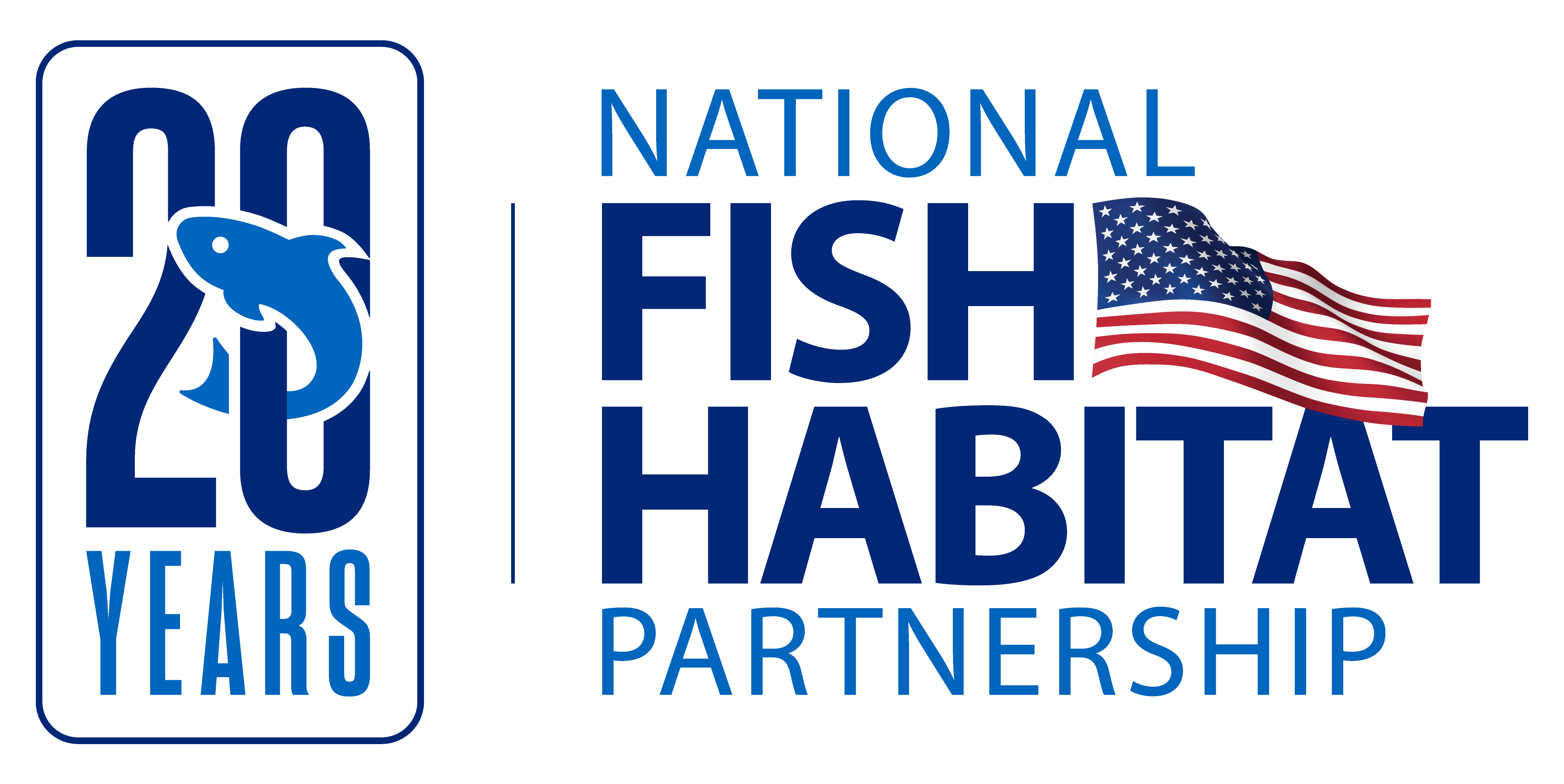
11/29/2021 2:57 AM
(Baltimore, MD) – Christopher Estes received the Stanley A. Moberly Award for his Outstanding Lifetime Achievements and Contributions to Fish Habitat Conservation. American Fisheries Society (AFS) President Brian Murphy and AFS Fish Habitat Section President Gary Whelan presented the award at a Plenary Session at the AFS 151st Annual Meeting on November 8, 2021, in Baltimore, Maryland.
The Stanley A. Moberly Award was established in 2019 and is presented annually to an individual who has achieved significant success in a fish habitat career related to research, policy, management, education, project implementation, communications and outreach, or another endeavor. The award covers freshwater, coastal, and marine habitats, and was developed by the AFS Fish Habitat Section in partnership with NOAA Fisheries, and the National Fish Habitat Partnership.
“We applaud the distinguished contributions of Christopher Estes and thank him for his continuous efforts to further the conservation of fish habitats,” said AFS President Brian Murphy.
Christopher’s pursuit of habitat conservation is best characterized by his exceptional knowledge and tireless advocacy for seizing every opportunity to lead, implement, and support science-based legal, institutional, and public involvement actions and solutions to successfully conserve adequate amounts of instream flows and water levels in rivers, lakes, and reservoirs to sustain fish, wildlife, and habitat conditions on a global basis.
Estes’ extraordinary 46+ years of professional interest in the linkages between water availability and aquatic, riparian, and upland habitats was first inspired by working as a field assistant helping to assess fish, wildlife, and habitat environmental impacts of proposed phreatophyte control proposals for the Verde River (Arizona) riparian habitat corridor in 1970. His formal fish and wildlife professional career began in 1975 serving as a fish and wildlife biologist with the Montana Fish, Wildlife, and Parks contributing to water quality, instream flow, and water level conservation studies, primarily within the Yellowstone River watershed. Estes next joined the Alaska Department of Fish and Game (ADF&G) in 1977 and worked there until retiring in 2010. Estes’ notable achievements included the development and leadership of the Department’s initial formal statewide instream flow and water level conservation program in 1986, later referred to as the Statewide Aquatic Resources and Coordination Unit. Estes coordinated all fish and wildlife scientific and related technical and policy actions, including outreach, pertaining to securing reservations of water (water rights for instream flows and water levels) on behalf of the ADF&G under AS 46.15.145. He also participated in the development of state legislation, regulations, and policies relating to AS 46.15, including representation of Alaska’s interests pertaining to proposed environmental federal laws.
ADF&G supported Estes’ participation in international and national habitat conservation initiatives benefiting the department. As a result, Estes co-founded the National Instream Flow Program Assessment (NIFPA) project in collaboration with the U.S. Fish and Wildlife Service to further improve the abilities of state fish and wildlife agencies, U.S. Fish and Wildlife Service regions, and Tribes to successfully secure adequate amounts of water for fish and wildlife in rivers, lakes, and reservoirs, and to better address other water-related regional and national conservation issues. The NIFPA project led to the 1998 formation of the Instream Flow Council (IFC) in which Estes was a contributing founder. The IFC is composed of the 50 state fish and wildlife agencies representing the United States and its territories and their Canadian provincial/territorial counterparts. Estes serves as one of its Directors at Large.
Estes also served in a national leadership and coordination role providing significant contributions facilitating the development of the 2006 National Fish Habitat Action Plan (NFHAP). Approval of NFHAP by the leadership of state and federal agencies resulted in the formation of the National Fish Habitat Board (Board) and National Fish Habitat Partnership (NFHP). Estes also served as a staff member to the original Board and contributed to the formation and operation of Fish Habitat Partnerships. Estes continues to serve on the NFHP national Science and Data Committee. Collectively, these actions contributed to the success of the NFHP, and in 2020, its codification under federal law (Title II of PL 116-188).
Estes formed Chalk Board Enterprises, LLC in 2011 and continues to provide instream flow and water level conservation services and serves on national and international advisory panels, and actively participates in professional organizations as an Aquatic Resources and Habitat Scientist.
Estes received his M.S. from Washington State University, Pullman, WA in Environmental Science and B.A. from Prescott College, Prescott, AZ in Biology/Environmental Science. He has authored and co-authored numerous instream flow and water level conservation-related publications.
Estes has been an AFS member since 1976 and spearheaded the development of its first instream flow and water level-related conservation policy.
Estes has received several awards for his professional contributions and achievements throughout his career and was inducted into the AFS Fish Management Section Hall of Excellence in 2020.
About the National Fish Habitat Partnership:
Since 2006, the National Fish Habitat Partnership has supported 1,115 projects benefiting fish habitat in all 50 states. The National Fish Habitat Partnership works to conserve fish habitat nationwide, leveraging federal, state, tribal, and private funding resources to achieve the greatest impact on fish populations through priority conservation projects of 20 regionally-based Fish Habitat Partnerships. For more information, visit:
https://fishhabitat.org/
https://www.facebook.com/NFHAP
https://twitter.com/FishHabitat
